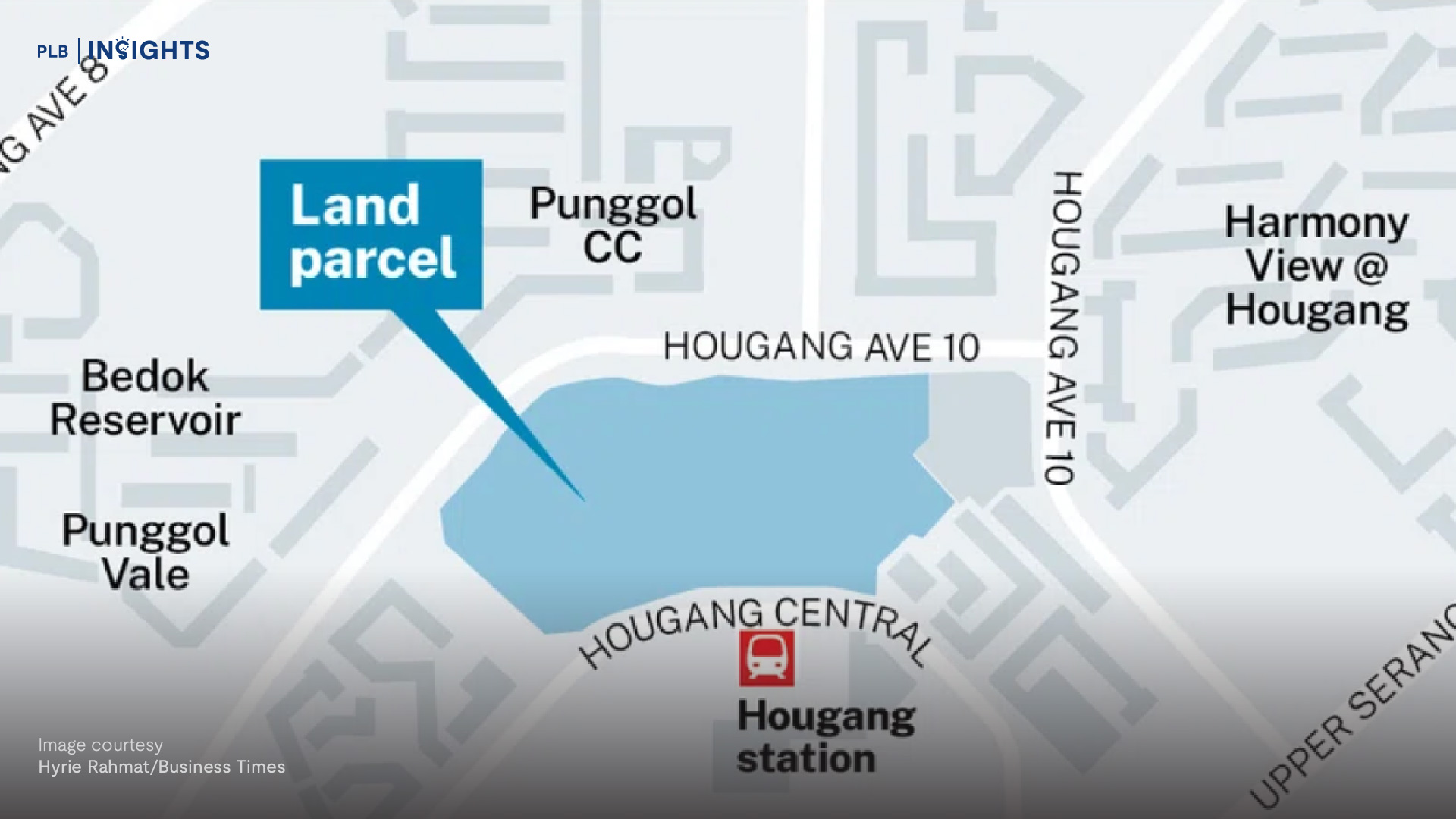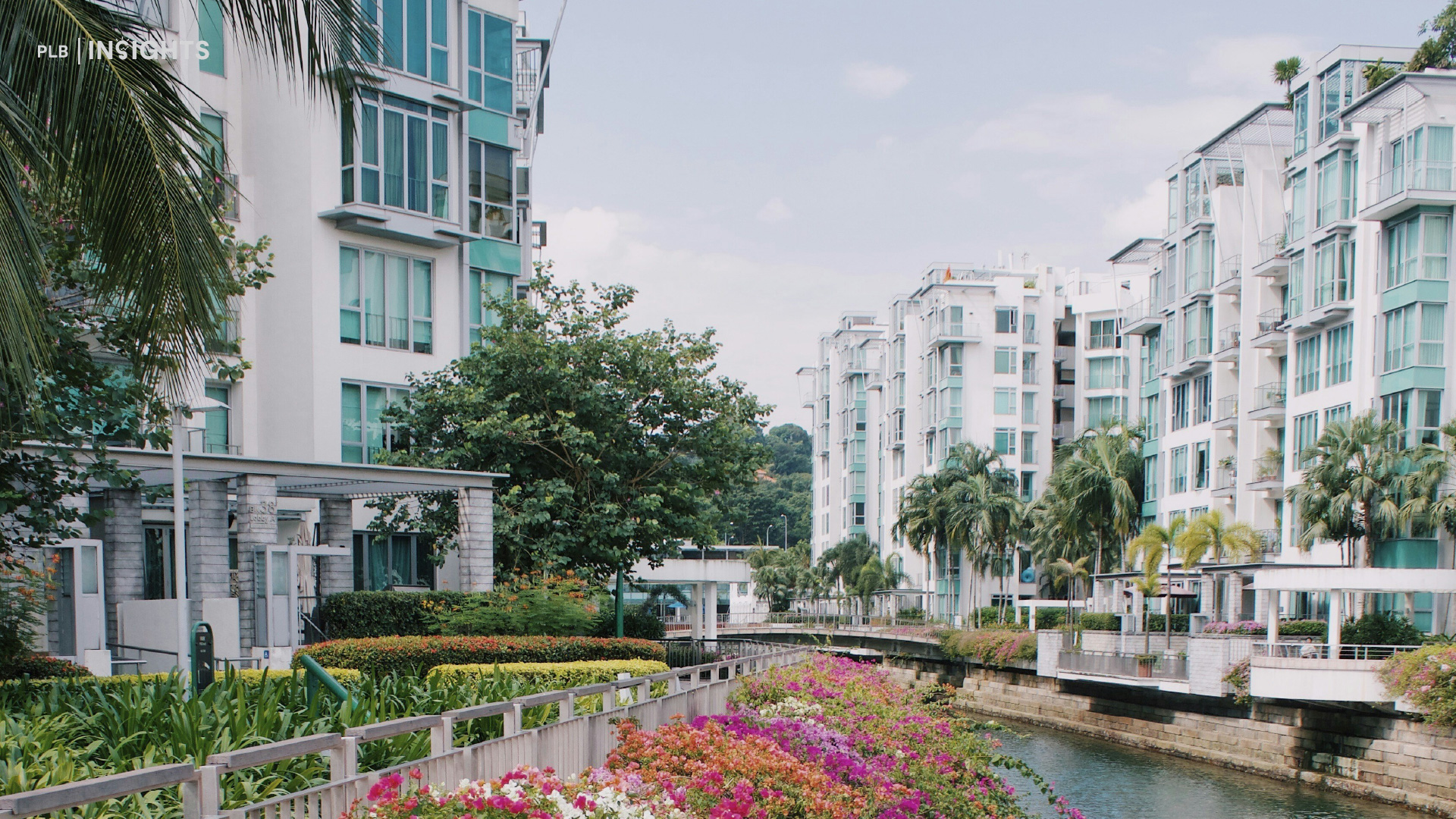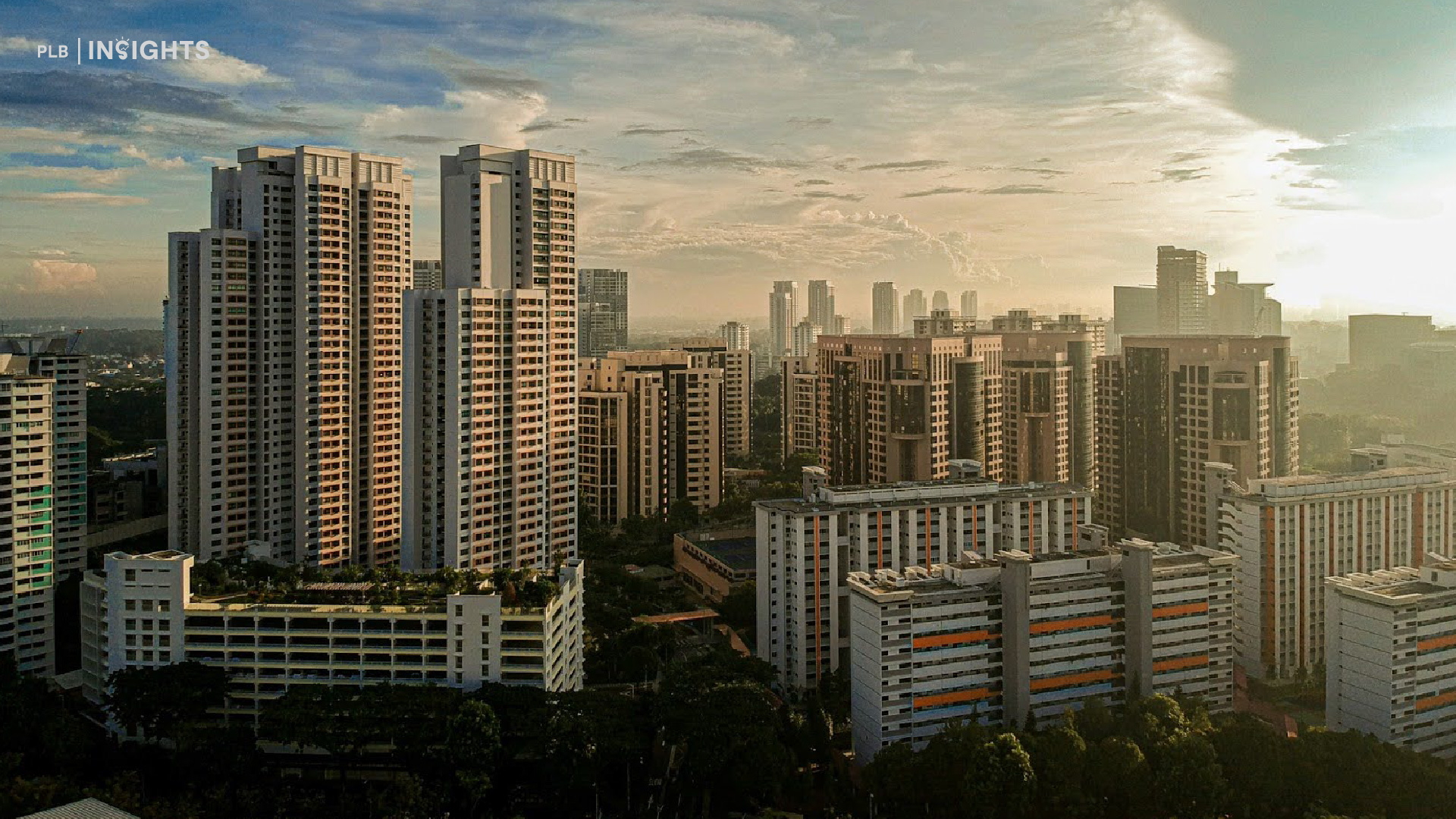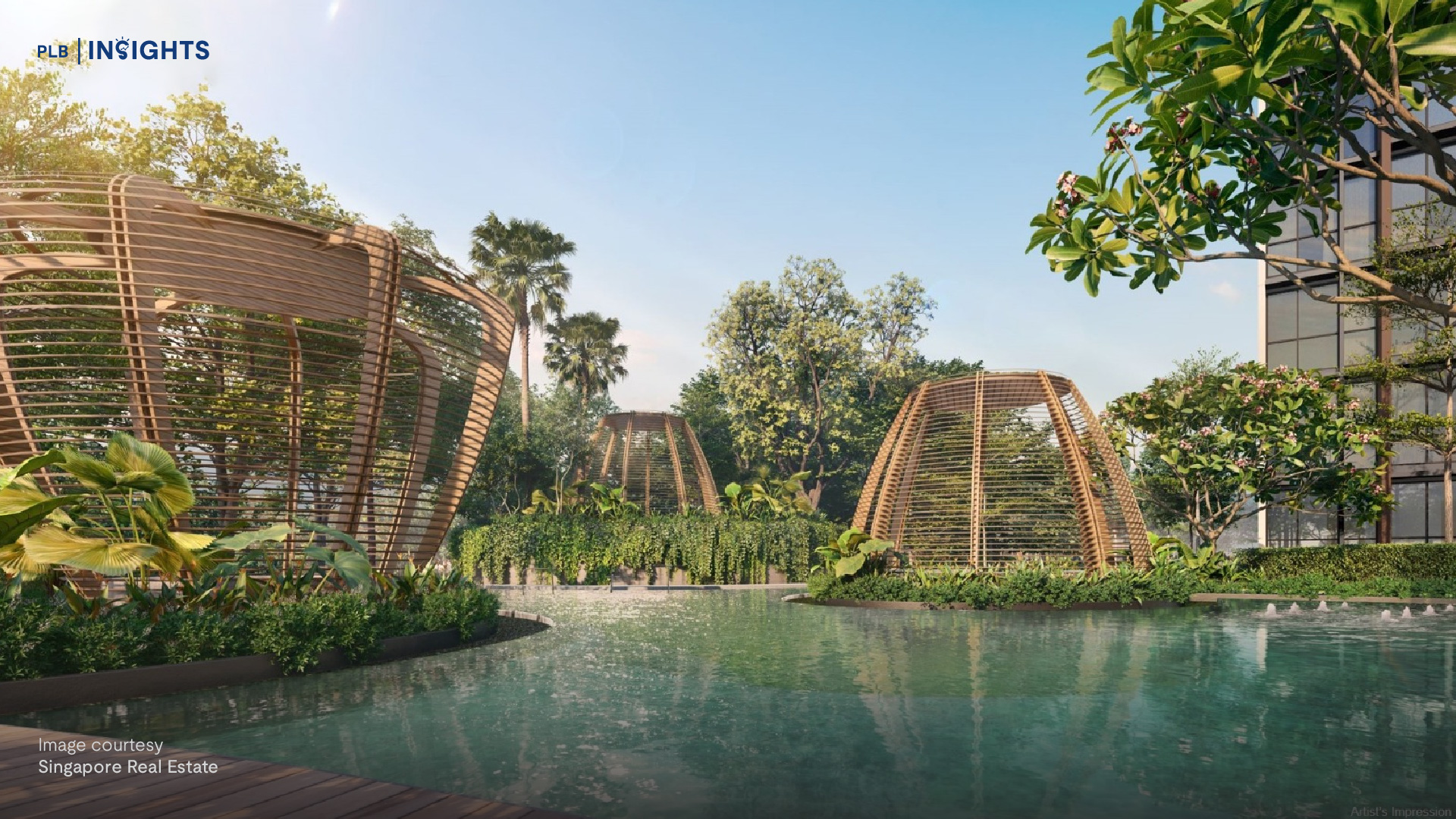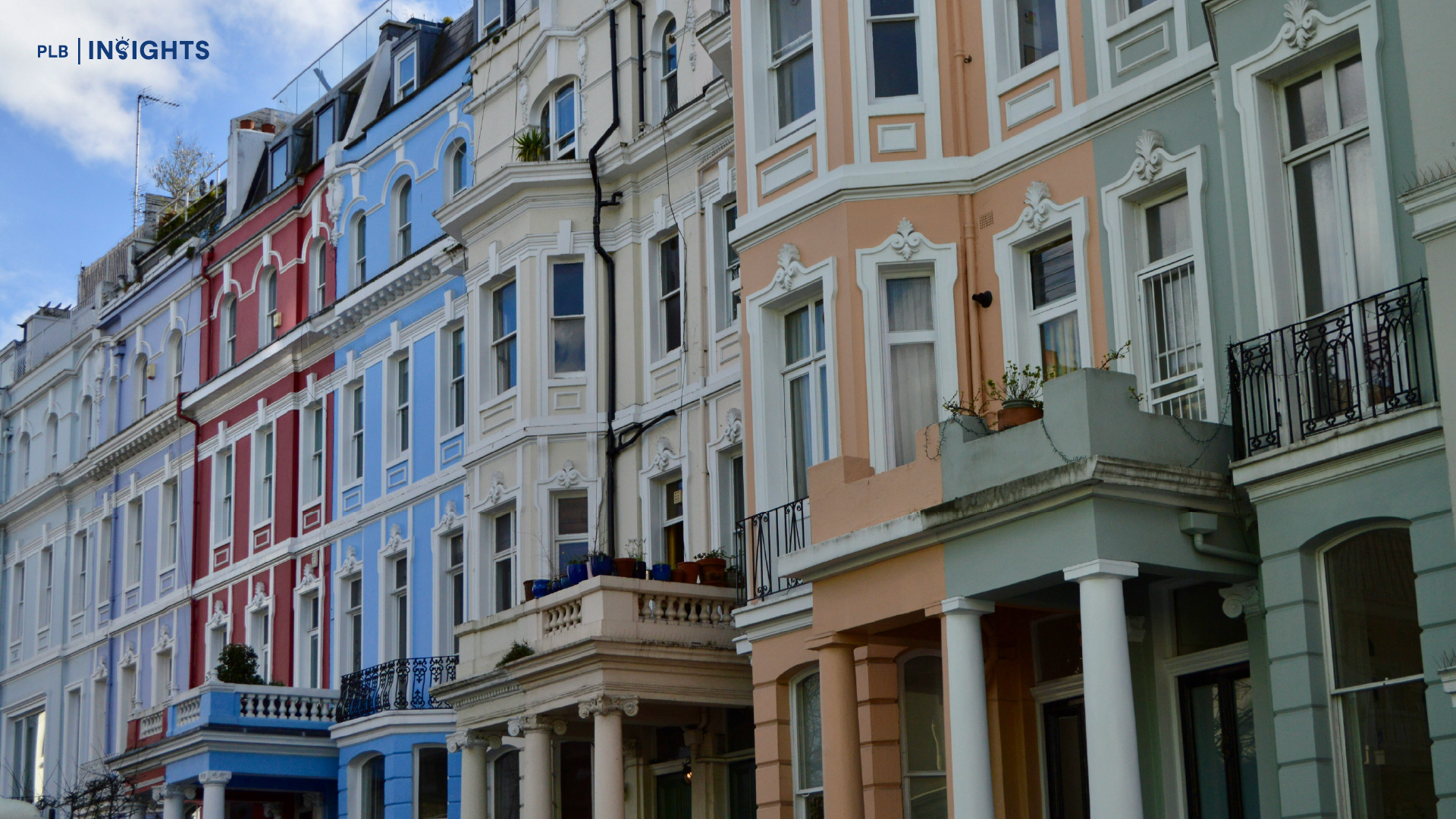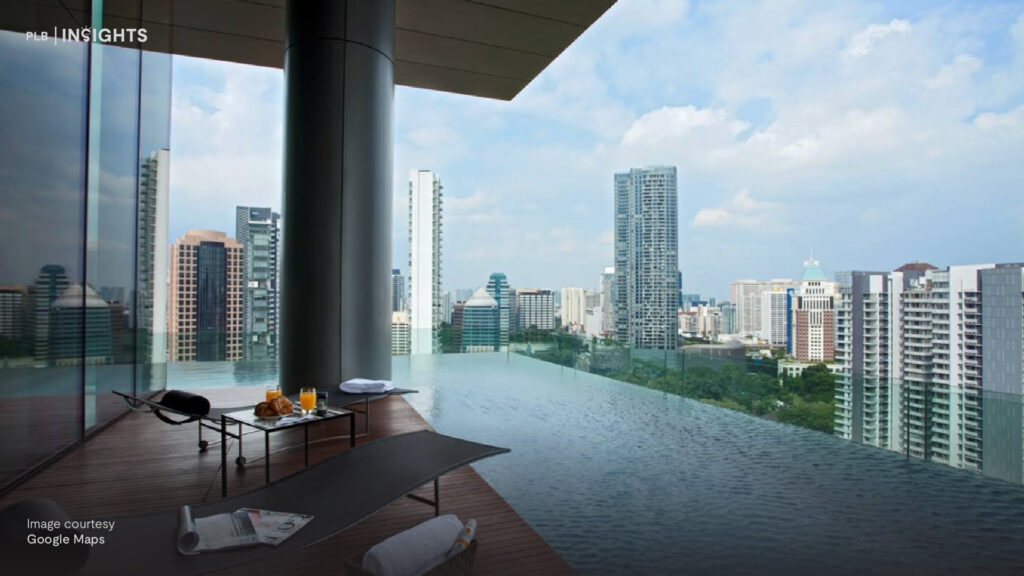
When a 3-bedroom unit at The Marq on Paterson Hill changed hands for $19.18 million ($6,274 psf) in September 2025, it made headlines. The buyer, reportedly Swiss shipping heir Kristian Jebsen, paid one of the highest per-square-foot (PSF) prices seen along Orchard Road this year.
On paper, the purchase looks impeccable:

Yet peel back the layers and a broader question emerges: Are freehold prime condos still the unshakeable investments they’re often believed to be?
The Halo of Freehold in a Leasehold Nation
In a city where most land is held on 99-year leases, “freehold” carries almost mythical status. Many assume it guarantees perpetual capital preservation and superior appreciation.
But as this transaction shows, tenure alone doesn’t guarantee outperformance. EdgeProp’s analytics revealed that The Marq on Paterson Hill’s prices have grown 48.1% since its 2007 launch — and this growth largely hinged on the latest above-average sale transaction. Without this $19 million outlier, long-term appreciation would have been far more modest.
Over that same period, many well-chosen 99-year leasehold projects in the Core Central Region (CCR) — particularly those near new MRT lines or rejuvenated enclaves — have appreciated as much or even more. Many of such developments saw steady demand and liquidity, outperforming older boutique freeholds despite their limited lease tenure.
Freehold ownership secures time, but not necessarily velocity of demand or price growth. In a market driven by accessibility and yield, tenure alone has become a weaker predictor of returns.
When Scarcity Cuts Both Ways

Boutique developments like The Marq on Paterson Hill often command a premium for exclusivity. Only 66 units exist, most owned by ultra-high-net-worth individuals unlikely to sell. But that scarcity also means thin transaction data and volatile price benchmarks.
Since 2023, just one unit has changed hands per year. Such low liquidity magnifies each sale’s influence on the average psf price— as seen with the 2025 record transaction, which lifted the project’s entire pricing curve overnight.
For investors, this raises an uncomfortable truth: exclusivity limits exit options. When the market softens, even prestigious addresses can struggle to find comparable resale references or willing buyers at the same level. Scarcity may protect a brand’s mystique, but it can also trap capital when sentiment turns.
How It Stacks Up Against Its Neighbours

Within a 500-metre radius of The Marq on Paterson Hill sit 38 condominiums, 32 of which are freehold. Among them, The Marq on Paterson Hill commands the highest price at $6,274 psf, followed by Skyline @ Orchard Boulevard ($5,371 psf) and Tomlinson Heights ($3,935 psf).
All three are boutique freehold developments completed between 2011 and 2015, offering generous layouts and ultra-prime Orchard proximity. Yet their resale trajectories differ sharply. Tomlinson Heights, for instance, has recorded more profitable than unprofitable transactions, with gains reaching up to $4.7 million. By contrast, The Marq on Paterson Hill has seen 14 loss-making resales, including one of $7.162 million in 2022.
This contrast highlights that even within the same neighbourhood and ultra-prime segment, historical sales performance plays a critical role in shaping buyer confidence and future pricing. Because Skyline @ Orchard Boulevard and Tomlinson Heights have logged more positive transaction records, they benefit from stronger resale references — which, in turn, help sustain prices and support future appreciation within their respective developments. In contrast, The Marq’s mixed past sales outcomes have likely tempered market sentiment, contributing to more cautious resale pricing and heightened volatility over time.
The Price of Prestige — and the Myth of Safety
Luxury buyers often justify record psf prices as entry tickets to prestige. In global capitals like London or Hong Kong, prime freeholds are seen as wealth sanctuaries. But Singapore’s context slightly differs.
Policies such as Additional Buyer’s Stamp Duty (ABSD) and stricter loan-to-value limits have curtailed speculative inflows. Even though Jebsen qualifies for Singaporean-rate stamp duties under the Switzerland FTA, most foreign buyers face an ABSD of 60%. That cost alone curtails resale liquidity in this tier.
So while a $6,000 psf freehold may appear safe, its real-world tradability depends on how many buyers can afford to enter — and how many are exempt from ‘punitive’ taxes. Freehold status does not shield an asset from policy headwinds or shrinking buyer pools.
Yield vs. Trophy Value

A 3,000 sq ft unit at The Marq on Paterson Hill might command monthly rents of about $25,000 to $30,000 — translating to a gross yield of roughly 1.5–1.8%. For most UHNW buyers, however, yield is only one part of the equation. Properties in this segment are often acquired for capital preservation, portfolio diversification, and legacy continuity, rather than pure income generation.
That said, investors should recognise that the performance profile of luxury freehold assets differs from that of mid-tier investment properties. Their returns are less about recurring yield and more about long-term value resilience and wealth storage. Over time, these assets tend to hold value well during market downturns, even if their appreciation pace is gradual.
In essence, freehold luxury homes can serve as stable long-term investments — but their strength lies in wealth preservation rather than rapid capital growth.

Volatility in the Upper Stratosphere
EdgeProp’s data shows the condo’s average price jumped 47.5% y-o-y, from $4,253 psf in 2024 to $6,274 psf in 2025 — but that entire surge came from a single sale. This is a textbook outlier effect.
For valuation purposes, such volatility can create friction with banks and valuers, who rely on comparable sales. When comparables don’t exist, loan approvals tighten and buyers must inject higher equity. In other words, headline figures may flatter perception but obscure risk.
The Longevity Paradox
Freehold tenure suggests perpetuity, yet buildings age regardless of title. Now 14 years old, The Marq on Paterson Hill faces rising maintenance costs — borne by just 66 owners. Boutique freeholds lack economies of scale, meaning higher per-unit upkeep and potentially steeper sinking-fund contributions.
Meanwhile, larger 99-year projects built in the past decade may feature more efficient systems, shared cost pools, and newer amenities that sustain rental appeal. Over time, these operational advantages can offset lease decay and narrow the value gap between leasehold and freehold.
What “Prime” Really Means
The case of The Marq underscores a broader truth: “Prime” describes a location, not an automatic return profile.

For investors, freehold luxury assets should be approached like fine art — rare, prestigious, but illiquid and sentiment-driven. For those seeking compounding returns, a well-chosen leasehold in a growth corridor may prove more pragmatic.
Why the “Good Deal?” Question Still Matters
EdgeProp’s Is it a Good Deal? framework is valuable because it strips away emotional gloss. A property can be freehold, glamorous, and central, yet still underperform financially.
At The Marq on Paterson Hill, the $6,274 psf sale likely reflects personal motives — lifestyle anchoring or capital diversification — rather than yield optimisation. For institutional or data-driven investors, “good deal” must still mean returns exceeding opportunity cost and market average.
When you adjust for liquidity, yield, and risk, ultra-prime freehold condos rarely clear that benchmark. They remain statements of identity, not necessarily of financial efficiency.
Final Thoughts: The Real Measure of a Prime Investment
The Marq on Paterson Hill’s latest sale both validates and warns. It validates enduring faith in Singapore’s prime residential market — where global wealth continues to park capital. Yet it also warns that prestige and permanence don’t equal profitability.
The smarter question today isn’t whether a property is freehold, but whether it offers liquidity, resale support, and long-term resilience. Investors should ask themselves not just what they are buying, but who will buy it after them, and whether that buyer base will remain deep enough to sustain future demand.
For most investors, diversification across strategic leasehold and selective freehold assets offers a better balance between growth, yield, and liquidity.
Even in District 9, success lies not in owning the rarest property — but in owning the one most others still want to buy
Thinking of investing in Singapore’s prime property market? Get in touch with our expert consultants for tailored advice and data-backed insights.


